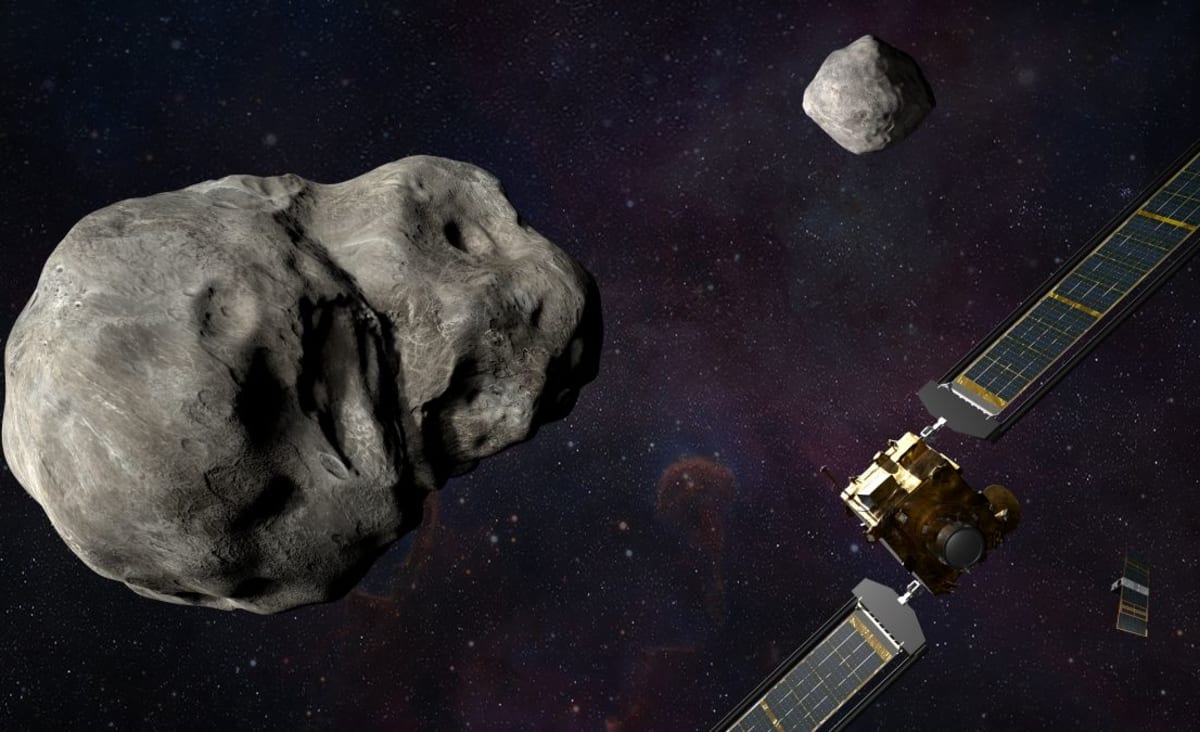
www.space.com
NASA's DART mission will move an asteroid and change our relationship with the solar system
The DART mission will mark the first time humans have interfered in the orbital dynamics of the solar system.
Science & Tech
The dinosaurs didn't have a space agency; maybe if they did they'd still be here, would-be planetary defenders sometimes quip about their quest to avoid an asteroid impact.
Planetary defense aims to identify any asteroids on track to cause serious damage to Earth and, should such a threat arise, act to deflect the rock. Such an impact is the only natural disaster that we can prevent, planetary defense experts often say.
But planning an asteroid deflection would be difficult today, given several outstanding questions about just how effective a maneuver would turn out to be in the real world. So next year, planetary defense will take a big step, conducting its first experiment to determine how such a deflection might play out in reality thanks to NASA's Double Asteroid Redirection Test, or DART, which launches later this month.
In late September or early October of 2022, the 1,210-pound (550 kilograms) DART spacecraft will slam itself into an asteroid called Dimorphos. Scientists will be watching eagerly, measuring how much the impact speeds up the space rock's orbit around its larger companion, Didymos — the first real data about what it might really require to steer a threatening asteroid out of Earth's path.
It's just one rock, just a small change. Just to reduce the odds that we humans go the way of the dinosaurs. But DART's impact will also mark a new relationship between humans and the solar system we live in, a milestone perhaps worth contemplating.
A matter of scale
Over the decades, humanity has left footprints on the moon, rover tracks on Mars, a puff of metals in the atmospheres of Jupiter and Saturn, silent robots scattered from the sun to beyond the edge of its influence. But until now, orbital mechanics have been free of human fingerprints, orchestrated only by gravity and chance and the bones of the solar system. It was never quiet, of course, but it was chaotic in precisely the same way as it ever had been.
DART's impact will be the first human fingerprint on this eternal dance of the solar system — a nearly imperceptibly tiny one but a fingerprint nonetheless, the first time a coalition of humans have come together to purposely tap any one piece of the maelstrom around us.
"Humans are like — we can do anything in the solar system, we can even move things out of the way," Ellie Armstrong, a geographer of outer space at the University of Delaware, told Space.com.
























































